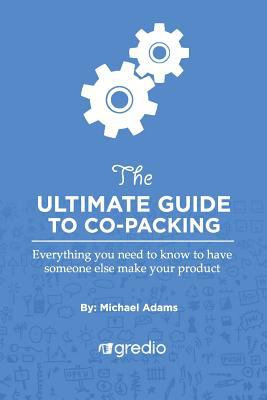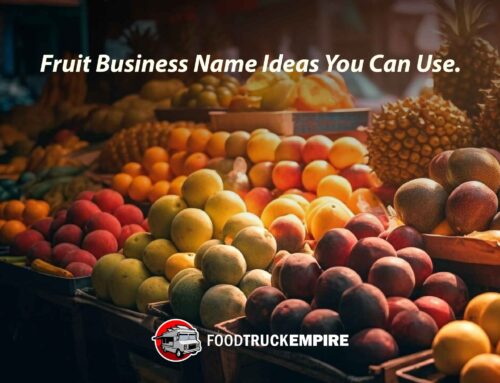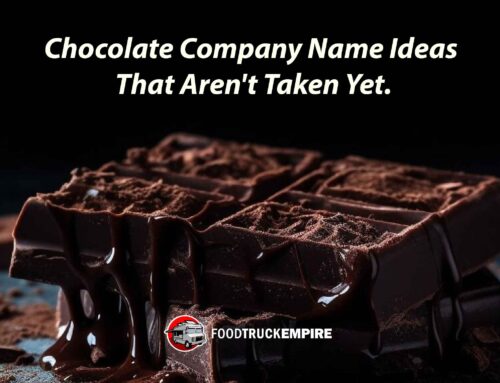Thinking about making the transition in your food business to use a co-packer? Here are the most popular questions we’ve received on this topic. If you’ve thought about working with a co-packer interested in be sure to read The Complete Guide to Profitable Co-Packing.
1. Does co-packing hurt your company reputation?
I don’t think it does. On one hand, it’s a business decision. It frees you up to grow. On the other hand, customers may want to meet the people who actually makethe product. They want to make that personal connection. However, your company will get to a point when you need to give up producing your product. Customers should understand that as long as your quality stays the same.
2. What if I can’t find a copacker?
There are some parts of the nation where copackers simply don’t exist. That’s why many food companies choose to get their products produced several states away. Some NYC companies produce in Vermont. Companies in Florida produce in upstate New York.
If you choose to produce out of state, pay careful attention to the shipping charges you’ll incur to get a pallet of product back to your warehouse. It may end up being far too expensive. In that case, look for a shared kitchen or consider financing a kitchen with a few other food producers.
3. How do you negotiate a better rate with your co-packer?
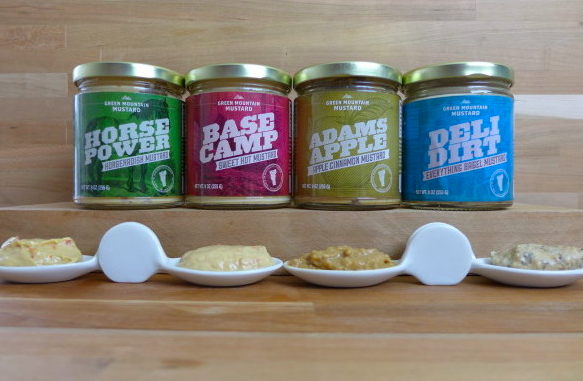
Ever gone on a mustard flight?
You have to have the guaranteed volume to be able to secure an annual contract with your copacker. Many smaller copackers will take you on a casebycase basis because they don’t know if and when you may go out of business. With larger, established brands, it’s easier to know if they’ll go out of business or not.
However, you may be able to negotiate a better per unit rate on some flavors if they require less labor or you’re producing more of just that one flavor. I always say, nothing ventured, nothing gained. It’s worth asking your copacker to see if they’ll work with you. Often times, they won’t want to lose your business.
4. How do I know if a company co-packs its products?
Look on the label. It will either say “manufactured for” or “distributed by” these are typically giveaways that the company doesn’t make its own products. You could also just ask, too. A lot more companies are starting to copack their products because they need to focus on growing the company.
5. What other service should I look for besides manufacturing?
Fullservice copackers are amazing. Why? Well, because they do everything. But, you’ll pay for it. Look for co-packers who provide consulting, nutrition facts labels, upcs, and ingredient sourcing (they often know of ingredient sources you’ve never heard of). This way, you’ll be able to get more done at one company and have to split services up.
6. What do you do if co-packing doesn’t work out?
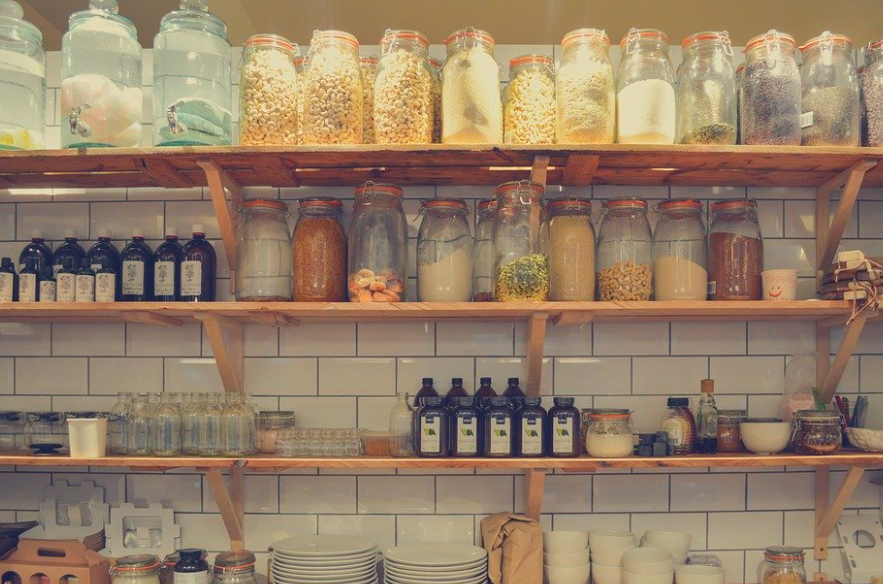
Even the best manufacturers can sometimes run out of ingredients.
You can always go back to producing your own products. You’re the best at it anyway, right? Or, you can always meet in the middle and start using shared kitchen.
Remember, though, you won’t be able to have the same flexibility as you had with a copacker. For many larger companies, it ultimately becomes less expensive to produce products by yourself, using your own production facility.
7. Is there any software to manage everything with my copacker?
A lot of food producers use pads of paper or Microsoft Excel or Google Docs to help run their business. That can only take so far.
Ask your co-packer what programs or software they use to help manage the day-to-day operations. If the software they use sounds easy to learn, go for it. As you might expect, it will be challenging to get co-packers to switch software providers even if you have a better and easier solution.
8. Do co-packers help me transition out of my home kitchen?
When you make the transition from your house to another kitchen, there can be a lot of new things. Whether it’s ingredient sources, scaling up, or connections to other producers and retailers, copackers will help you to a point especially with scaling up your recipes.
While you’ll pay for it, the help is worth it. You copackers know what they’re doing. They know how to grow food companies, because it’s likely they’ve done it before. Don’t be afraid to ask for help and do it early, too.
9. Is there a reason not to leave your home kitchen?
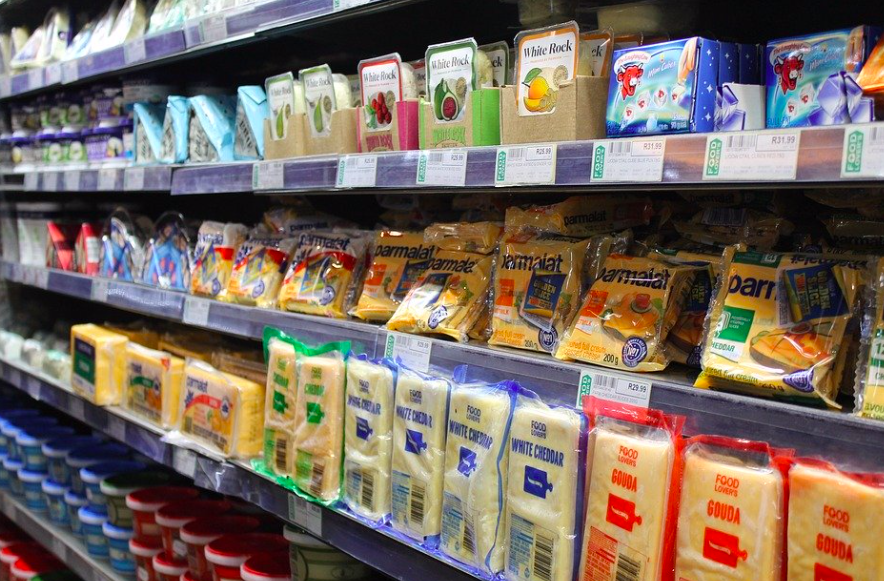
Imagine… Your food on store shelves!
Of course there are. Your house is wellknown to you, it’s free rent (to an extent), and you have a less expensive state license. But, there comes a time when your home oven only takes you so far. You might need to move to a facility.
However, it can be a costly move. Your supplies increase, your labor increases everything goes up. So, you have to think about where you want your company to be. Do you want to stay small and in your home or do you want to take your company to the next level?
10. Are there any industry experts to help you co-pack?
Yes there are tons of consultants out there a simple google search reveals a couple of experts, depending on what you’re looking for. From process controls, to consultants who help you find a copacker, they’re out there. But, you’ll pay for it. Many consultants charge anywhere between $50$200/hour. Sometimes, however, the consulting expenses could save you thousands of dollars down the road.
Questions to ask yourself after you visit all of your co-packers:
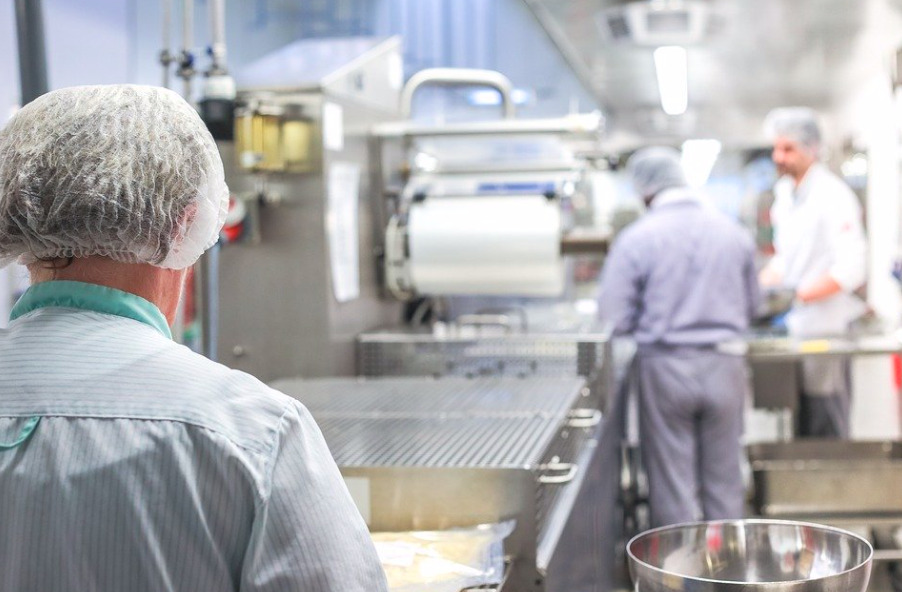
Prepare yourself with these questions.
1. Did I get along with the co-packer?
As I’ve stated earlier, your copacker is like your significant other. You deal with them almost every day, know their quirks, and their faults. Your copacker should be just like your best friend. Were they approachable? Did they ask questions about you not them? Did they introduce you
to their employees? I bet you enjoy working with nice people people with integrity. Evaluate how you felt talking to the kitchen manager. If they weren’t the right fit, that’s your first red flag move on.
2. Were there any warning signs?
What didn’t you like about the kitchen? Were there things the kitchen needed to work on? If there were any warning signs, are they able to be worked through with you or the copacker? You have to be able to start off on the right foot. Otherwise, it won’t be a great relationship.
3. Can I grow with this company?
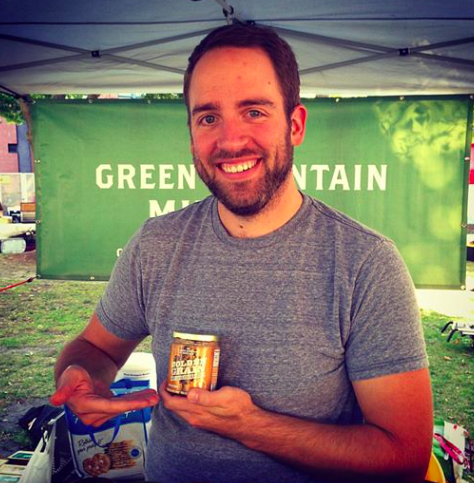
Promoting at a local farmer’s market.
As noted by the need for lots of storage, the copackers needs to have the ability to grow with you. Otherwise, you’ll be looking for a new copacker in a short period of time. That’s something we’ll talk about later, too. With any company that gets started, you expect to grow. Find a copacker who is willing to grow with you.
4. Are they able to produce anything else besides my type of product?
This is thinking ahead a little bit, but does the copacker have the ability to produce anything else? Just because you make spaghetti sauce, doesn’t mean you won’t start making seasoning mixes, garlic bread, and pizza sauce. Having a copacker with a diverse product mix means it’s easier for you to expand your product line.
5. Are the costs associated reasonable to produce my product?
When you tour a copacking facility, you’ll likely go over all of the costs associated with copacking (and there are a lot). What it comes to is can you afford it? You may have stumbled on the best facility in a 200mile radius, but do you have enough cash in the bank to do a run? As you’ll learn later, when I started out, I almost ran my bank account to $0 and it was frightening.
Now that we’re on the topic money, it’s time to get down to numbers. The costs of co-packing can either be straightforward or complex. I’ve dealth with both. And the hard part is every co-packer is different.
Co-Packer Decision Guide
Here’s a worksheet to take with you to different copackers and fill out when you’re on the phone or researching different kitchens. Print one out for each copacker you visit.
Name of Kitchen:
Visit Date: ___/___/___
|
Pros |
Cons |
- Was everything stored on pallets?
- Was the kitchen clean?
- Did you find lot tracking and HACCP documents?
- Was the equipment updated?
- Was there enough storage for your things?
- Did you get along well with the copacker?
- What was the pricing structure?
Final thoughts & comments:

